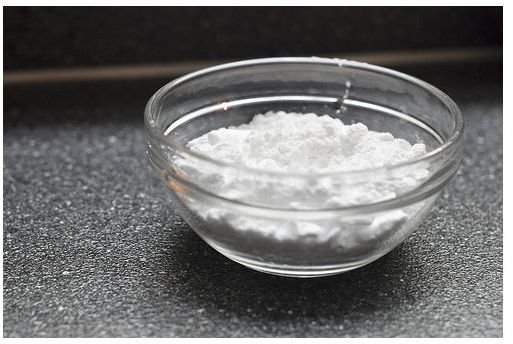An Overview of Baking Soda Nutrition
Baking soda, also known as sodium bicarbonate, saleratus or nahcolite is a chemical salt with the formula NaHCO3. It takes the appearance of a white powder with crystalline grains. Natural baking soda comes from soda ash, which in turn comes from trona, a naturally occurring ore. The reaction of calcium carbonate, sodium chloride, ammonia and carbon dioxide in water also produces baking soda.
Nutritional Value of Baking Soda
An overview of baking soda nutrition reveals that it contains no calories, fat, cholesterol, carbs, protein, or any other mineral, vitamin, or other nutrients. The only major nutrient is sodium, and in this baking soda scores extremely high. An ounce (28) gram of baking soda contains 7661 mg of sodium, and even ½ a teaspoon (2.3 grams) of baking soda contains 616 mg of sodium, almost double the recommended daily limit of 300 mg for an average individual.
The other major component of baking soda is ash. Half teaspoon (2.3 grams) of baking soda contains 0.85 grams of ash.
Nutritional Uses of Baking Soda
Despite the zero value of baking soda nutrition, baking soda finds widespread application in the food industry and in households.
The most common use of baking soda is as a leavening agent in baking. Combining baking soda with phosphates, cream of tartar, lemon juice, yogurt, buttermilk, cocoa or vinegar effects a chemical reaction that releases carbon dioxide bubbles. Such carbon dioxide, when trapped in batter or dough enables the food to rise when cooked at temperatures over 176 degrees Fahrenheit.
Baking soda is slightly alkaline, with a pH of 8.1, as opposed to a pH of 7 for alkaline neutral substance. This causes widespread use of baking soda to reduce acidity.
A regular diet of meat, fish, dairy products, grains, sugars, alcohol and caffeinated drinks increase acidity levels in the body. The body, in a bid to balance the acidity retains alkaline salts in the bloodstream, and this causes heartburn, digestive distress, stomach upset, fatigue and other symptoms. Consumption of half to one teaspoon of baking soda dissolved in water provides the body with the required balance and helps alleviate such distress.
Adding a pinch of baking soda to tomato sauce when cooking, or when brewing coffee reduces acidity in the food. Adding some baking soda to the water used to soak beans overnight softens the beans, aids the cooking processes and reduces the beans’ propensity to cause flatulence in the eater.
Baking soda is an effective meat tenderizer. Adding baking soda to the stews or rubbing it directly on a cut of meat and rinsing it off before cooking makes the meat tender.
The mild acidity of baking soda makes it a good candidate for use in place of toothpaste, useful to polish teeth and prevent bad breath.
Baking Soda also makes for a good cattle feed supplement, as a buffering agent for the rumen.
Medicinal Uses
The benefits of baking soda extends to medicinal and health uses.
A report published in the Journal of the American Society of Nephrology (JASN) suggests that daily consumption of baking soda may help reduce the risk of kidney disease and damage in individuals suffering from metabolic acidosis, a condition where a person accumulates too much acid in the bloodstream due to acid indigestion.
The acid neutralizing property of baking soda also causes its use in a variety of first aid applications. Applying baking soda dissolved in water soothes the discomfort caused by sunburn, the itch caused by poison ivy and the pain caused by bee stings. One-half teaspoon baking soda mixed into 4 ounces (120 ml) of water makes for an effective antacid.
The benefits of baking soda also extend to a host of non food applications, especially as a cleansing agent.
Disclaimer: The information contained in this article does not constitute medical advice. A review of baking soda nutrition suggests that it affects sodium levels and interferes with medications. Readers may check with a physician before consuming baking soda.
References
- USDA National Nutrient Database for Standard Reference, Release 23 (2010). https://www.nal.usda.gov/fnic/foodcomp/cgi-bin/list_nut_edit.pl. Retrieved 16 February 2011.
- Arm&Hammer. “Pure Baking Soda.” https://www.armhammer.com/basics/magic/#9. Retrieved 16 February 2011.
- “Baking Soda Prevents Kidney Disease, Renal Failure and Kidney Dialysis.” https://www.naturalnews.com/026799_baking_soda_disease_kidney_disease.html#ixzz1ECEXBVi3. Retrieved 16 February 2011.
- “Baking soda can clean your teeth, clear your complexion and act as a natural antacid.” https://www.naturalnews.com/021618_baking_soda_water_sodium.html#ixzz1ECFiY1rt. Retrieved 16 February 2011.
Image Credit: flickr.com/RowdyKittens
